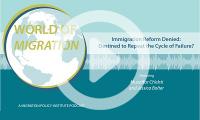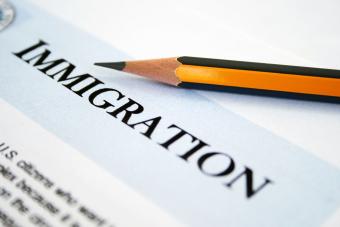Legalization/Regularization
Recent Activity
The 20th annual Immigration Law and Policy Conference, organized by MPI, Catholic Legal Immigration Network, Inc., and Georgetown University Law Center, features fresh, thoughtful policy and legal analysis, and discussion of some of the top immigration issues by leading government officials, attorneys, researchers, advocates, and other experts.
The presidents of Colombia and Ecuador speak at this high-level event held on the sidelines of the Ninth Summit of the Americas, focusing on the critical need for succcessful integration of Venezuelans in the Americas.

Experts consider what is known about public opinion and narratives on refugees, looking at the Ukrainian and Syrian crises, and how post-crisis solidarity can be harnessed towards sustainable protection.

This MPI discussion with leading experts, advocates, and a top official from the administration examines the Biden track record on immigration and what lays ahead

The architecture of the U.S. legal immigration system rests on a 1965 law and was last significantly updated in 1990. While there is widespread agreement that the existing framework does not align with the needs and realities of the 21st century, Congress has proven unable to enact significant legislative reform over the past two decades. How have debates on immigration changed and is achieving bipartisan consensus on this highly charged issue possible today?
Pages
Recent Activity
Ecuador se ha convertido en un destino importante para los migrantes sudamericanos, un país de tránsito para quienes se dirigen al norte y una fuente renovada de emigración. El pequeño país andino se ha visto enredado en las tendencias cambiantes de movilidad de la región y ha respondido a las circunstancias cambiantes con una combinación de políticas que ha producido algunos resultados imprevistos.
El desplazamiento de venezolanos ha llevado a países de toda América Latina y el Caribe a poner en marcha políticas y programas para registrar, regularizar y apoyar la integración de los venezolanos. Sin embargo, la medida en que la regularización ha ayudado a los venezolanos a encontrar trabajo ha variado de un país a otro, como se analiza en este informe.

























As Europe and the United States Face Similar Migration Challenges, Spain Can Act as a Bridge